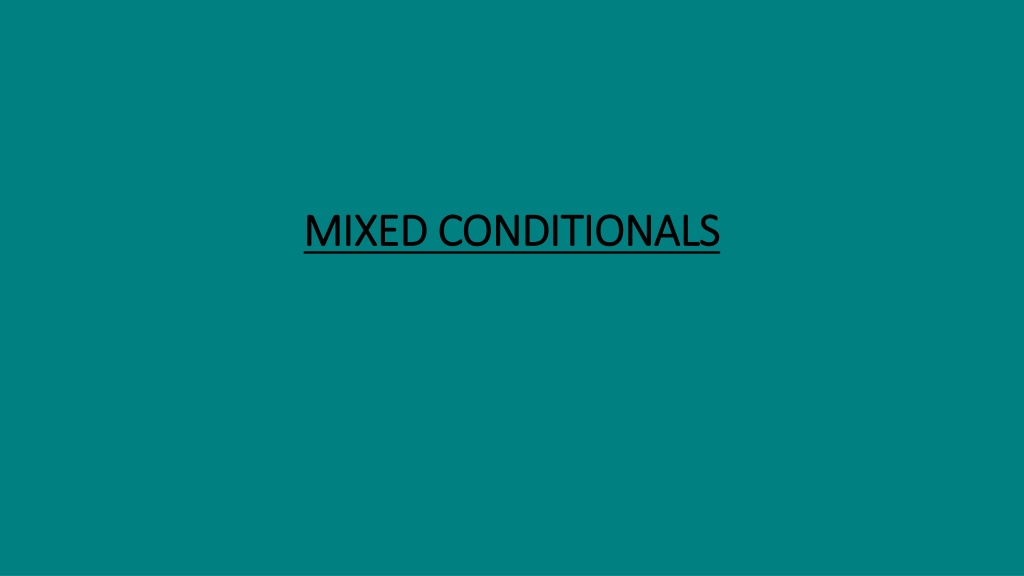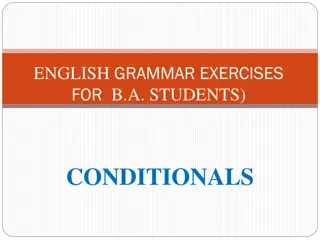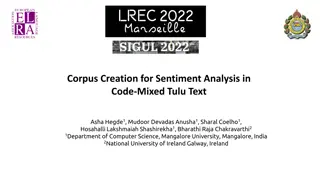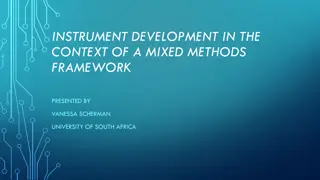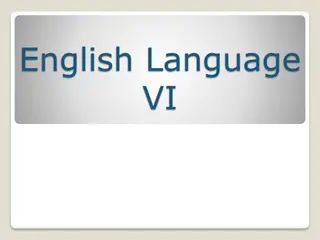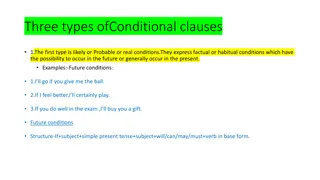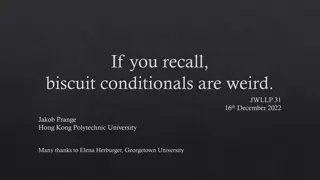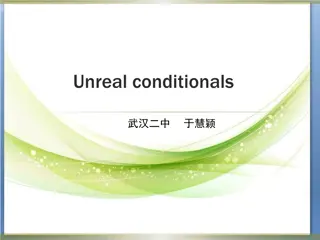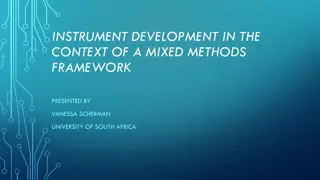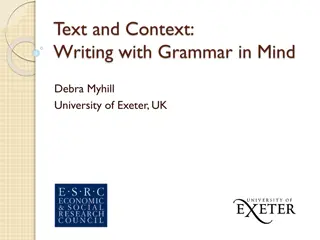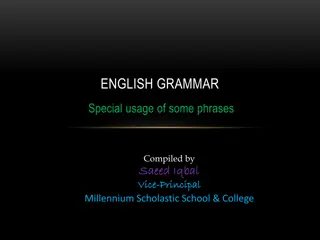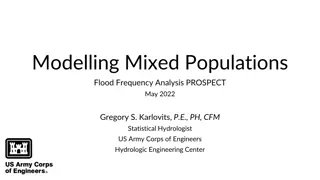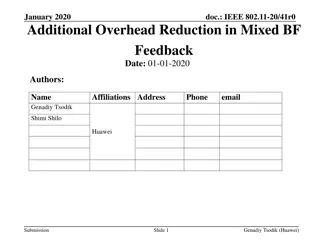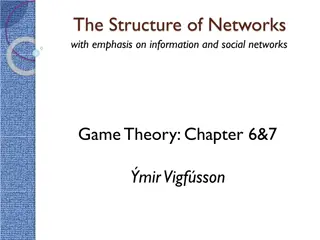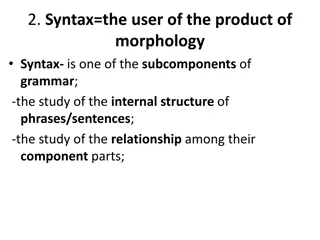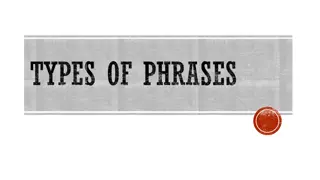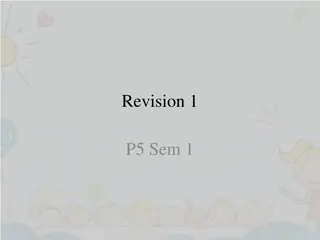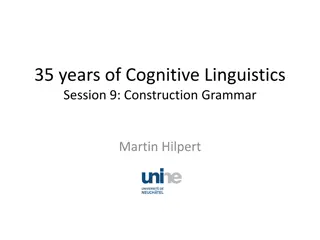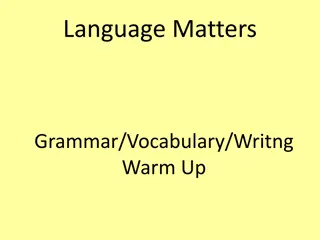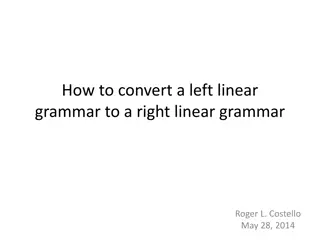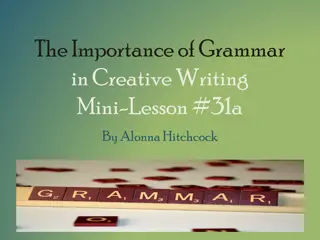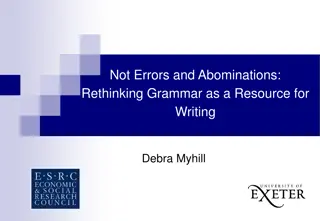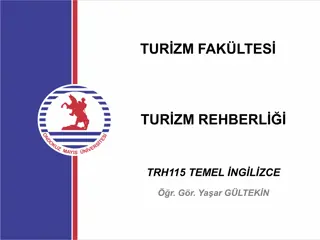Understanding Mixed Conditionals in English Grammar
Exploring the concept of mixed conditionals in English grammar, this comprehensive guide covers different structures and uses of mixed conditionals to discuss changes in the past affecting the present and vice versa. It also delves into alternative phrases to start conditional sentences, inverted conditionals using inversion, and examples for better understanding.
Download Presentation

Please find below an Image/Link to download the presentation.
The content on the website is provided AS IS for your information and personal use only. It may not be sold, licensed, or shared on other websites without obtaining consent from the author. Download presentation by click this link. If you encounter any issues during the download, it is possible that the publisher has removed the file from their server.
E N D
Presentation Transcript
MIXED CONDITIONALS MIXED CONDITIONALS
Why do we mix conditionals? We can mix conditionals to talk about: 1) Changes in the past that would produce different outcomes in the present. 2) Different situations in the present that would also result in changes in the past.
1) PAST/PRESENT Imagining how a change in the past would affect the present: Structure: If + Past Perfect Would + Infinitive e.g. If I hadn t managed to catch my flight, I would be stuck at the airport for the next six hours.
2) PRESENT/PAST Imagining how a different present would imply a change in the past. Structure: If + Past Simple Would have + Past participle e.g. If I had an issue with staying up all night, I wouldn t have asked to work the night shift.
IF ALTERNATIVES Conditional sentences can begin with words/phrases other than if . Some of these alternatives and if are interchangeable with each other. However, others can also be used to emphasize the conditions surrounding an action.
Some popular alternatives are: 1) Unless 2) Otherwise/Or 3) As long as/So long as 4) Supposing that 5) Providing that/Provided that 6) Assuming that/On the assumption that 7) On (the) condition that/With the condition that
INVERSIONS Using the grammatical phenomenon known as inversion, we can create conditional sentences without if by reversing the word order in a sentence (Subject-Verb Verb-Subject). We can also use inversions to make sentences more formal.
1) Using inversion in the First Conditional: Structure: Should + Subject + Infinitive e.g. Should you decide to accompany us on the trip, we ll be happy to accommodate you! 2) Using inversion in the Second Conditional: Structure: Were + Subject e.g. Were my son s room this messy, I would be hysterical. 3) Using inversion in the Third Conditional: Structure: Had + Subject + Past participle e.g. Had your departure not been so sudden, we would have given you a proper farewell.
One last thing: The phrase Were it not for (the inverted form of If it weren t for ) can also be used as an inverted conditional. For example: Were it not for/If it wasn t for the pouring rain, we would be on our way to the beach right now. Were it not for = Without
